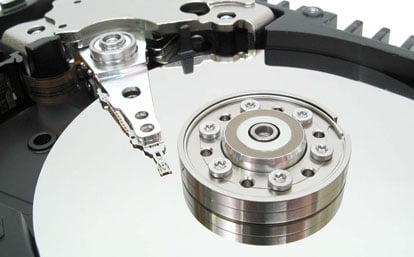
Western Digital Releases Helium Filled Hard Drives
January 4, 2013
Defining Business Continuity and Disaster Recovery
January 7, 2013Data security is more important than ever. A look at cyber-crime and the various threats to our digital frontier.
Data security. We hear all about In this day and age yet you can never be too safe. Data Thieves are opportunists simply looking for the simplest way to attain information illegally. Here are 3 common ways in which your data can be breached:
Spyware Attacks
The scariest thought of cyber-crime is that data thieves don’t need to be in the same location to steal data. Spyware attacks are very common and can occur anywhere there is a internet connection.
So as long as your network firewall is unsecured you are most certainly at risk. Spyware is malicious software that is designed to gather personal information based various techniques. Cookies and pop-up ads are a known culprit as they can often install themselves on a person’s computer without their knowledge. Attackers can then gain access or control over your data files.
Thumb Sucking Threat
This is perhaps the easiest way in which data can be unlawfully copied. “Thumb-Sucking” , as it is referred to, is when someone simply copies information from a computer to a USB. It’s as easy as it sounds, a machine left unattended is poached by the assailant, a USB stick is inserted into the drive and information is automatically extracted.
Theft
According to a report issued by privacyassocication.org, 28 percent of data breaches are caused by theft. In march of 2012 a state agency dedicated to handling child support services reported that 4 of its hard drives had gone missing. This instance occurred during a routine disaster recovery drill. The hard drives had simply disappeared during transport back to the facility.
As common as Spyware attacks are, people shouldn’t forget that data theft can occur from within an organization. It is therefore important to identify areas in which you could be putting your data at risk. Properly setup firewalls on servers dedicated to storing your data is a must. Encrypted access points and physical security on-site are also important. At the very least, knowing where data breaches can occur will make it easier to put a data security plan in place and mitigate risk.
